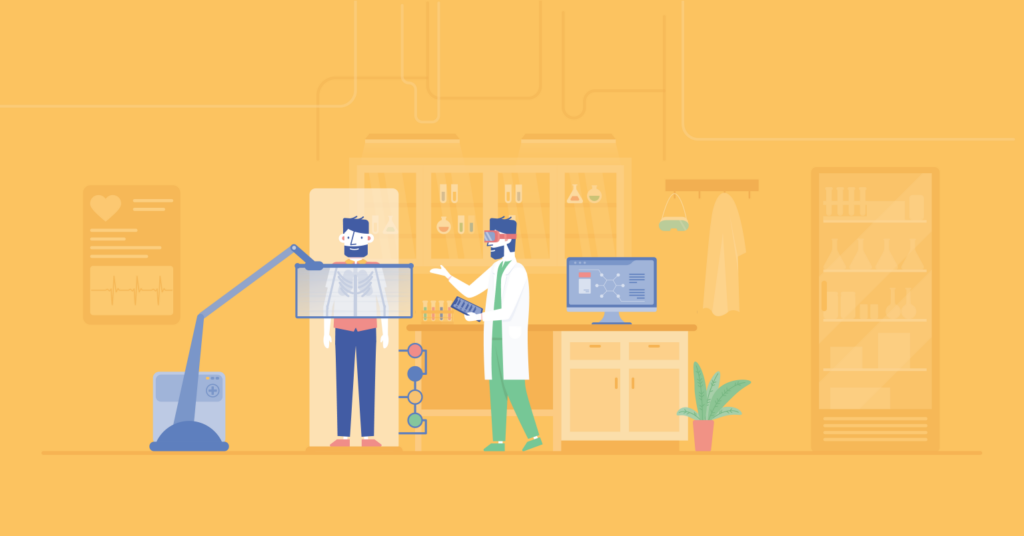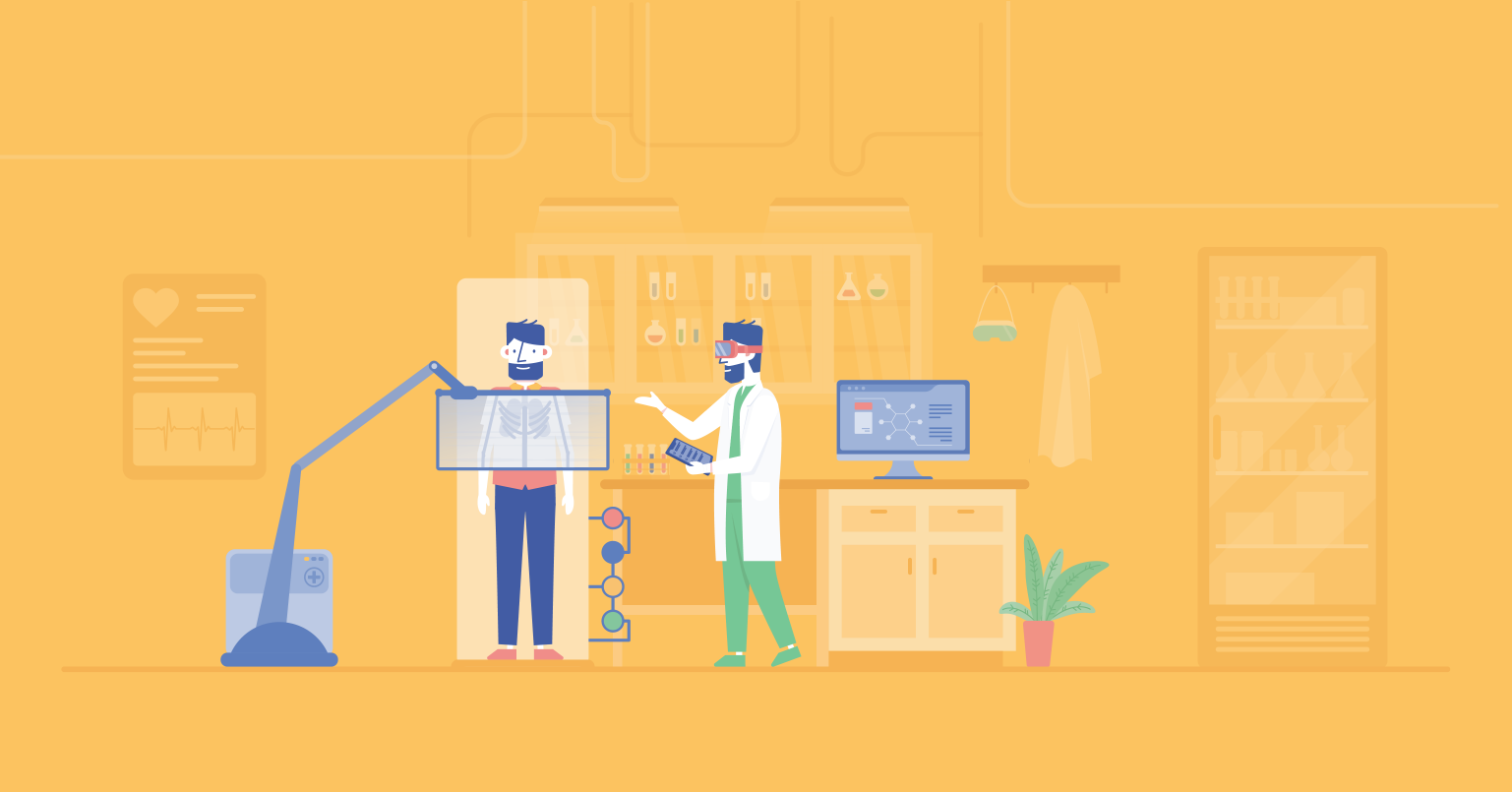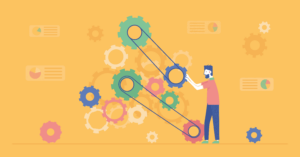Often, when new technologies are devised, one of the first applications that comes to mind is how it might be utilised to improve, or even save, lives. Therefore, the healthcare industry has, out of necessity, always needed to embrace emerging technologies.
Advancements in areas such as AI, the ever growing Internet of Things, and new applications for nanorobotics are just some of the trends which are presently redefining healthcare in the modern world.

Artificial Intelligence
Few technologies have ever made such a splash as AI did in 2022 and 2023, thanks to the arrival of the ChatGPT chatbot and a number of other similar applications. Artificial intelligence is now being applied to more facets of life than ever before, and healthcare is no exception.
In terms of practical uses for AI in the healthcare arena, it is already the case that AI is employed in training and education, research, analysis, and in administrative tasks.
AI is capable of managing schedules and providing basic information to patients via a chatbot, which is especially useful in the case of those who suffer from severe anxiety. These chatbots can even be used for delivering cognitive behavioural therapy.
According to recent research from Yale, in the future we can expect to see a streamlined healthcare system which is centred around AI systems, perhaps using a range of devices to gather information about our health and wellbeing, then drawing inferences from this data and feeding them back to our healthcare professionals.
AI is particularly effective when it comes to making decisions based on large datasets, and it’s easy to see how this can be applied in a clinical setting. It stands to reason that one day, perhaps in the not too distant future, AI may even be capable of making accurate diagnoses.
Robotics
Robotics is already crucial to surgery, enabling certain procedures to be carried out with much greater precision, which reduces risk, blood loss, infection and scarring. Robotic keyhole surgery has been in use for a few years now, operating through a tiny opening and carrying out procedures that could not be safely performed by human hands.
The future of robotics is equally exciting. Advancements in this area may include robots carrying out lab tests without human intervention, performing even more delicate and intricate surgeries such as removing plaque from within arteries, and helping to reduce dosing errors.
In addition to this, the field of nanorobotics has seen some groundbreaking developments, providing new ways to deliver drugs to specific, targeted parts of the body, repair damaged and cancerous cells, destroy harmful bacteria, and more.
Virtual Reality
Virtual reality is another particularly fascinating area, providing a diverse range of benefits to both patients and healthcare professionals. Some healthcare researchers in the field of neurosurgery are using VR to allow a surgeon to virtually explore a patient’s brain before operating on it.
VR also has massive implications for the efficiency of surgical training. One study found that, when using VR as part of their training, the surgical performance of the study participants was increased by 230% more than traditional educational methods.
In terms of helping patients, VR has been proven to be effective in reducing and managing pain and anxiety, which has significant implications for post-surgical care. VR applications have also proven capable of improving the memory and cognitive functions of patients, slowing down the progression of dementia symptoms.
Blockchain Technology
Best known as the foundational technology underpinning cryptocurrencies such as Bitcoin and Etherium, blockchain has a wide range of potential applications within the healthcare sector.
The implications of blockchain technology for security are particularly great, enabling the possible creation of a common database containing the health records of all individuals within a system, as well as clinical trial results and study findings, all kept safe, sound, encrypted and confidential using blockchain tech.
Theoretically, this data could be preserved, exchanged, and accessed by doctors and healthcare providers from any place or device. A number of companies are currently working on such systems, including Medicalchain and Advaneer Health, but their products have yet to become widely used.
Big Data Analytics
Big data analytics provide robust glimpses and valuable insights into trends in the healthcare industry. By examining massive datasets with advanced analytic methods, more confidence can be placed in the results found, the correlations drawn, and the predictions made.
The ways in which big data analytics can be applied to the healthcare industry are not difficult to imagine. By considering huge amounts of information and cross-referencing them with other datasets, we can make relatively reliable predictions regarding the health and prognosis of an individual patient, highlighting any potential complications so that they can be anticipated by doctors.
Furthermore, big data analytics could be used in hospitals to assess patient satisfaction and identify trends. The data itself may come from a range of different sources, but it’s likely that wearables and portable devices will play a large part in this.
Internet of Things
The growing interconnected network of communicative devices, the ‘Internet of Things’, has already put into place an infrastructure which could prove extremely useful in healthcare.
By gathering data recorded by smartphones, watches, fitness products, tablets and more, a massive dataset can be constructed, which can, in turn, be analysed using big data analytics as mentioned above.
Such a dataset, representing an entire population, could enable healthcare professionals to glean a great deal about the health of individuals, but also of people in general.
Transformation & the Future
There is no doubt that, whilst some of these fields are in their infancy, the implications of digital and emerging technologies for the healthcare system are wide-reaching.
The responsibility for utilising these methods to their fullest falls on systems and services such as the NHS, who must work to incorporate new technologies into an existing – and in many ways outdated – industry.
Thanks to modern digital advancements, the future is certainly hopeful for both individual patients and the healthcare system as a whole, with new cures, new ways to keep patients comfortable, and new ways to minimise losses all on the horizon.
Vive la révolution.



